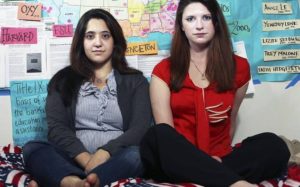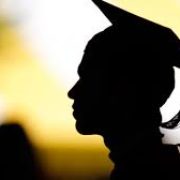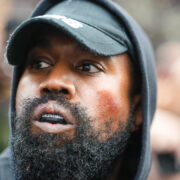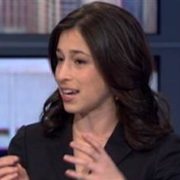Students organizing for change isn’t new, thank goodness. “Adults” take note. Written by Frank A. Fear, professor emeritus, Michigan State University.
The social activism emanating from Parkland, Florida is worth noting. High school students—informed, articulate, and passionate—have organized for change. Pivoting from an atrocious act, they’re speaking truth to power by calling out the president, Congress, and local officials for not doing enough—not nearly enough—to prevent school shootings.
Am I surprised by what these students are doing? Not at all. Why? former President Obama put it well:
Young people have helped lead all our great movements. How inspiring to see it again in so many smart, fearless students standing up for their right to be safe; marching and organizing to remake the world as it should be. We’ve been waiting for you. And we’ve got your backs.
8:00 AM – 22 Feb 2018
He’s right … at least in several respects. Some of us are inspired by what these students are doing. But not all of us have their backs. Hardly.
The targets of protest often seek to divert, deflect, impede and block change. And some Americans—everyday Americans, I might add–don’t want the students to succeed. They seem them as actors, stooges, puppets, and pawns. While the students have concluded “We refuse to live like this,” others find the status quo to be just fine.
Parkland students are learning—as other students have learned before them—what it’s like to exercise leadership for social change.
My first memory of student organizing for social action came years ago during the Jim Crow era. It was a time when racial apartheid not only existed in America, it was a way of life in parts of this country. Student action helped change that.
In early 1960, four college students from North Carolina A&T decided that they’d had enough of segregated dining. They sat down at a lunch counter in Greensboro, NC. Peacefully, the students asked to be served. They didn’t leave after they were refused.
The sit-in those four started swelled to hundreds of students in short order. The vendor (Woolworth’s) eventually relented. The company began serving African Americans at the same lunch counter where only Caucasians had dined just a few months before.
At the very same time, a high student by the name of Harvey Gantt watched what students were doing in Greensboro. He and his friends at Burke High School in Charleston, SC followed suit by protesting segregated dining in their hometown. It was Gantt’s introduction to social change. It wouldn’t be his last foray into that domain.
A few years later, Gantt applied for admission to Clemson College (now university), an all-white school. His application was rejected, even though he had been accepted (and was already enrolled) at one of Clemson’s peers (Iowa State). He applied again…and again…and was finally accepted (in 1963) on his third try—the first African-American to enroll at Clemson.
After graduation, Gantt became a successful architect, earned a master’s degree at MIT, and became the first African-American to be elected mayor of Charlotte, NC.
Having seen students step up—again and again—for social change, a few year ago I wrote an article about students taking action in the face of inertia and neglect. Here are a few examples.
Two students at the University of North Carolina at Chapel Hill—Annie Clark and Andrea Pino—spearheaded a campus-wide effort to address sexual assault. Their efforts prompted a national investigation and spawned a national movement. At Northwestern University, football players led by star quarterback, Kain Colter, filed paperwork to organize a union. That request went all the way up to the National Labor Relations Board. And Stanford students lobbied the university board to divest fossil fuel holdings from the school’s billion-dollar endowment. The board decided not to divest.
In all of these cases (and many more), students were unwilling to accept what they couldn’t support. They connected with like-minded peers in an effort to bring about change.
Consider what happened recently at my school, Michigan State University. Undergraduate students were among the first groups to question the university regarding how it handled the Larry Nassar catastrophe. Students flooded the university’s board meetings, organized rallies and marches, spoke out in the school newspaper, and organized resistance via Reclaim MSU.
Their protests weren’t ill-informed. When Nassar’s victims gave their impact statements, the country saw the situation unvarnished. Before long, the university president resigned and the faculty voted no confidence in the Board of Trustees. In effect, Michigan State got a reset.
Thanks to Parkland students that’s what’s happening now. The country is in reset regarding gun control. The narrative has changed from what it had been—“We can’t talk about this now”—to we WILL talk about this now! Parkland students are demanding change—not just for softer change as in better background checks—but for harder change as in banning sales of assault rifles.
How can we help these students succeed?
–We can speak encouragingly in public.
–We can write supportive posts on social media.
–We can applaud those officials who endorse students’ actions.
–We can support legitimate groups with aligned missions.
–We can lobby the government to change laws and ordinances.
–We can refuse to vote for any candidate that takes campaign funding from the National Rifle Association or any group associated with the gun lobby.
–We can boycott products and services with a financial link to the NRA and the weapons industry.
–We can run for office.
But what we can’t (and shouldn’t do) is tolerate crazy talk, like arming teachers with guns, or put in office those who either haven’t acted responsibly on gun control or have no intention of acting responsibly.
Consider the insanity undertaken independently by two Congressional candidates—Tyler Tannahill in Kansas and Austin Petersen in Missouri. Each candidate is giving away an AR-15 rifle in conjunction with his respective campaign.
Yes, let’s celebrate students as social change. Once again, young people are teaching our country a lesson—a lesson about democracy and what it means to act for the public good.
“Adults” take note.
___________
An earlier version of this article appeared in LA Progressive.




